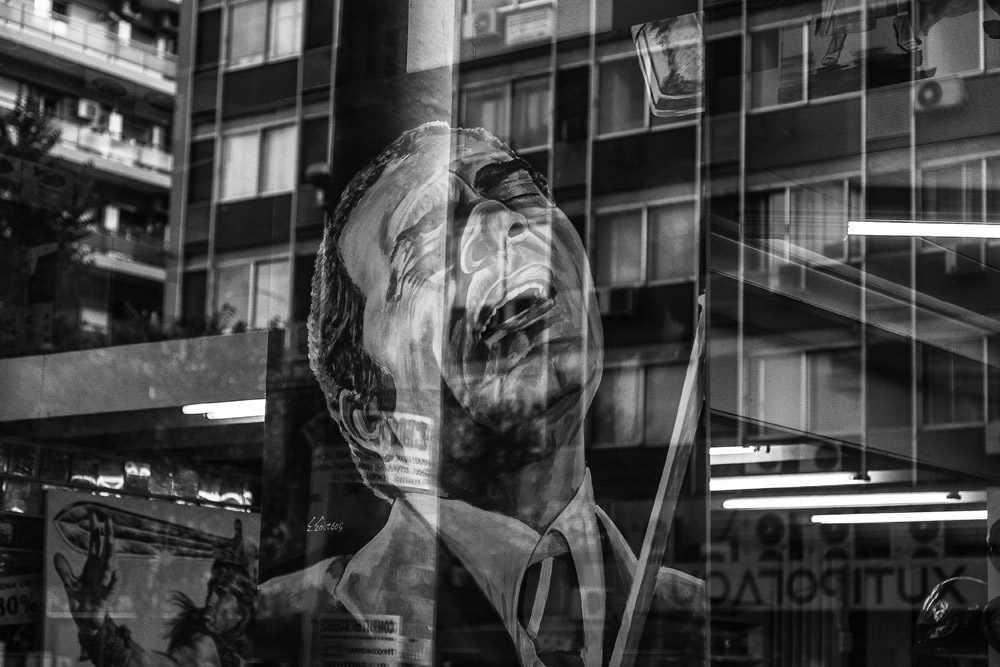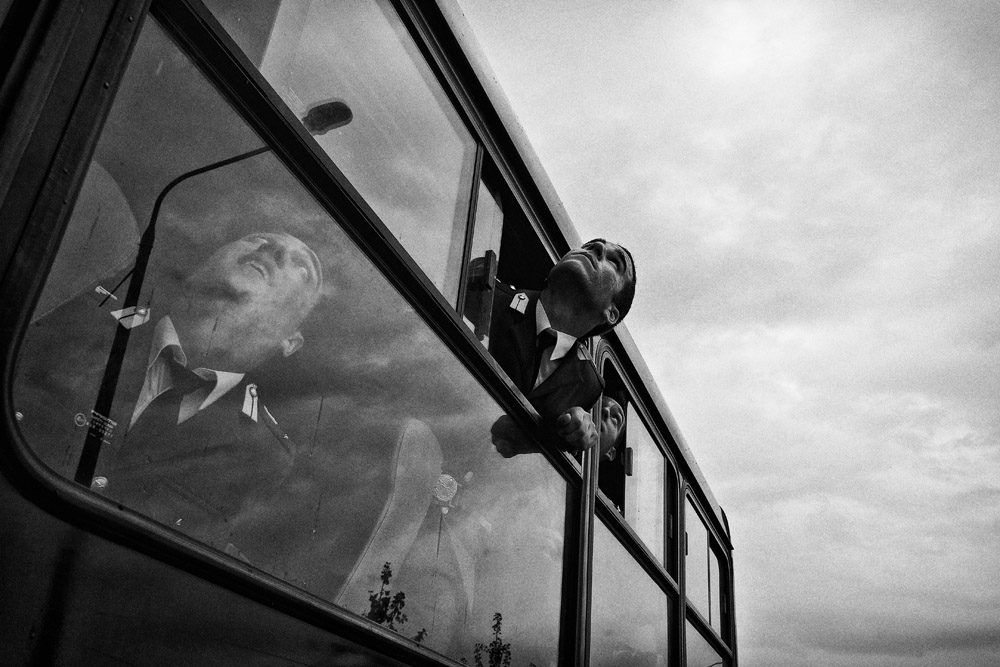blog
Interview with photographer Zisis Kardianos

F-Stop Magazine: How did you first become involved in photography and what led to you working in this medium as an artist?
Zisis Kardianos: I started playing with a medium-format Lubitel camera that literally fell into my hands when I was about 15 years old. I later went on to study sociology, and that somehow sparked an early interest in the art of photo-taking. I then took a two-year course on documentary photography. Photography had an immediate and life-changing effect on me right from the start. I became fascinated by the images made by the great street and documentary photographers of the era. At the same time, I was trying to write poetry, but I soon realized that photographs can be as lyrical and ambiguous as poems, and that you can express the same ineffable and complex feelings through images. Photography gradually became a way for me to absorb a place, to be there in a state of heightened awareness, both mentally and physically, to contest my fears and limitations, to connect and to be present.
F-Stop: The current issue of F-Stop Magazine includes images from your project “In Limbo,” can you tell us about this project? What led to this work?
ZK: TThe series took shape in my mind after I’d been shooting these images for about two years. The editing process is a completely different beast than the actual shooting. The former requires a more deliberate reflection on the images, while the latter demands a more instinctive response to the life unfolding around you in all its minute manifestations. After the series took a more concrete shape, I began to look for situations or small gestures that conveyed similar feelings and moods. These pictures represent my gut reaction during the first years of the economic recession in Greece as well as my way of translating the atmosphere of this period in a sublime and understated way.

F-Stop: Can you discuss your process for making these images or your creative process more generally?
ZK: I subscribe to the notion that photography is neither pure reality nor absolute fiction. So the story plays out between these two extremes; this is the key ingredient that I aim to distill in all my projects, with varying degrees of success. My general shooting process is for the most part intuitive. A great deal depends on plain luck. I like little surprises, and I’m enthralled by miraculous situations where things come together in a way that makes sense to me.
F-Stop: How do you choose what or who to photograph, what are you looking to capture?
ZK: When I first started, I used to roam the streets of whatever city that I happened to be in with no particular agenda except a very vague idea of what I was seeking. Later my work became more deliberate, and I started to shoot more within the loose framework of a specific project. Now I shoot a combination of street documentary, seasides, urban landscapes and interesting characters. My main interest as a photographer is to extract the sense of a place and comment on the human condition.

F-Stop: What do you hope people experience or feel when they look at your photographs?
ZK: As long as they feel something, I don’t care what…but hopefully the same empathy that I felt for my subjects at the time. Photographs can transport you to where the photographer stood in the moment of the exposure; I hope they can experience that.
F-Stop: Do you have a favorite image in this series? If so, which one and why is it the image that speaks to you most?
ZK: One of my favorite images is the one of the man carrying two bicycle wheels. I like how the wheels almost touch the ground, as if the man is depending on them to keep walking, making this image a symbolic icon of the situation Greece found itself in at the time.

F-Stop: Are you working on any other projects currently?
ZK: I’m working on several different projects concurrently, some of them being never-ending works in progress. Hopefully a few of them will end up in a book, as I like to do with most of my completed works. There is one under the title “Off-season”, which is a documentation of the infamous tourist resorts of my native island during the winter months. Projects like that, which are not dependent on travelling, serve as a motive to keep me in touch with the picture-making process as well as to fuel my creativity.
F-Stop: What photographers or other artists inspire you?
ZK: I’m constantly looking at the work of other photographers, and I’m easily carried away to explore different paths in my work. That’s why my output is varied and not very cohesive, one could say, but I don’t mind that, since the least of my concerns is to develop a recognizable style and to repeat myself. Therefore, besides the obvious key figures like Josef Koudelka or Robert Frank, my inspiration has been nourished by the work of completely different photographers…Philip Perkis, Krass Clement, Ken Grant and the late Lars Tunbjork come to mind. My visual literacy has also been nurtured since an early stage by Italian cinema auteurs like Fellini and Antonioni.
To see more of Zisis Kardianos’ work visit: www.fstopmagazine.com/featured.html OR www.zisiskardianos.com
Location: Online Type: Featured Photographer, Interview
One response to “Interview with photographer Zisis Kardianos”
Leave a Reply
Events by Location
Post Categories
Tags
- Abstract
- Alternative process
- Architecture
- Artist Talk
- artistic residency
- Biennial
- Black and White
- Book Fair
- Car culture
- Charity
- Childhood
- Children
- Cities
- Collaboration
- Community
- Cyanotype
- Documentary
- Environment
- Event
- Exhibition
- Faith
- Family
- Fashion
- Festival
- Film Review
- Food
- Friendship
- FStop20th
- Gender
- Gun Culture
- Habitat
- Hom
- home
- journal
- Landscapes
- Lecture
- Love
- Masculinity
- Mental Health
- Migration
- Museums
- Music
- Nature
- Night
- nuclear
- p
- photographic residency
- Photomontage
- Plants
- Podcast
- Portraits
- Prairies
- Religion
- River
- Still Life
- Street Photography
- Tourism
- UFO
- Water
- Zine

Anyone who acknowledges Philip Perkis has my respect. Nice Photographs!